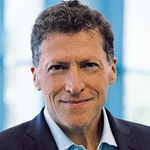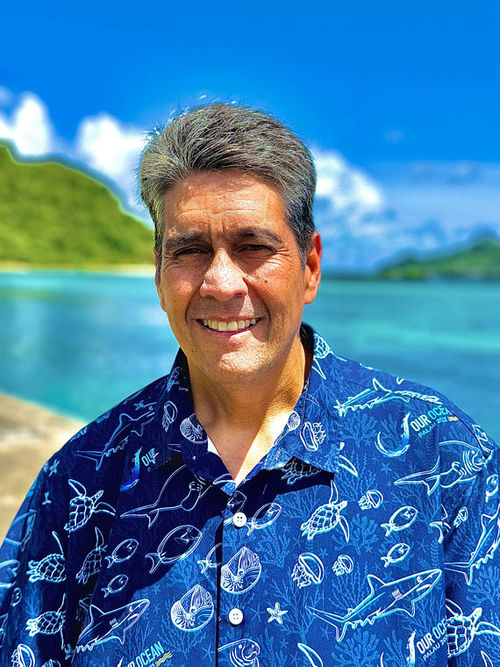
Arnie Weissmann
Every few years, a destination breaks out from the pack and in a short time goes from relative obscurity to a prominent position on the tourist map, reaping all the pros and cons that entails. Think Vietnam. Think Maldives. Think Turks and Caicos.
Think Palau?
Certainly not yet, but that may change before the decade's out. Today, there are no global hospitality brands operating in that western Micronesia nation of 21,000. But a 200-room Indigo resort will open there this year, and in two years a Four Seasons will welcome visitors to a private island that's just a short transfer away from the international airport. (Four Seasons began operating a luxury yacht with 10 staterooms and one suite in Palauan waters last September.)
When I was in the country earlier this week, I met with its president, Surangel Whipps Jr., to discuss tourism development. Sitting in the boardroom of the Palau International Coral Reef Center in Koror, Whipps articulated the tensions inherent in trying to balance economic development and conservation in an emerging tourism destination.
In nonpartisan Palau, he is regarded as the more business-friendly of the two candidates in an upcoming presidential election, but in other nations, he might be seen as a conservationist, supporting policies that slow development.
Palau's reefs are the healthiest I've seen in years: incredibly colorful coral, abundant sea life, unique golden stingless jellyfish in an island lake. It was the first country to require visitors to sign a pledge, stamped into their passports, to protect natural resources.
Throughout our conversation, Whipps alternated sympathy for commercial interests (his family owns retail and service companies in a number of verticals) and protecting natural resources. He spoke of seeking balance between protection and production.

Palau President Surangel Whipps, Jr. Photo Credit: Arnie Weissmann
He noted that, if the nation's airport runways were hardened, Boeing 787-8s could land there, opening the possibility that Qatar Airways could connect Palau to the world through its Doha hub. "Service from Emirates was a game-changer for the Maldives," he said.
But when I asked what nation most serves as a cautionary tale for how not to develop tourism, he responded, "the Maldives."
If Maldives flashed a warning to him, Bhutan serves as his model for low-density, upscale tourism with a focus on both economics and sustainability. At several points, Whipps spoke about the importance of attracting the "right" hotel brands and the "right" airlines. When mentioning Marriott, he talked of Ritz-Carlton and "J.W." Qatar is attractive because of its ample business-class and first-class cabins.
When I asked what his goal for visitation was, he said, "I don't think that there's a 'right' number. It's about managing the number." While there were only 23,000 visitors last year, he noted that "the airport was designed to accommodate 250,000 arrivals. We need the right tourists who, first of all, care about the environment. We need a certain number of tourists to keep the economy going, but we want to preserve the experience."
"Balance" dominated his word cloud as we spoke. "We appreciate the tourists -- it's important for our economy -- but we don't want to destroy what people come here to see," he said. "There's pressure, people saying you need to lower [barriers to development]. And we say, we want to preserve what Palau is."
While warming waters caused by climate change have already bleached and killed many reefs around the world -- the Maldives have been particularly hard hit -- the reefs of Palau are not expected to decline until sometime in the 2030s, possibly the 2040s. Frighteningly close as that is, it's a relatively long lifeline for a tropical country.
Palau also offers cultural attractions and important World War II battle sites, but the vast majority of the visitors come to dive or snorkel. What, I asked, is Palau's Plan B if the corals start to die?
He gestured around the room. "That's why this center is here. There's a lot of research being done. We have universities from around the world coming here, from England and Scotland, from Stanford and Duke. They study impacts, and we get helpful information."
Which explains why, in part, the Four Seasons will not see their property open until the 10th anniversary of its conception. The process was slowed by the discovery that corals on the property's island are particularly resilient to the stresses that threaten other varieties, resulting in a slower, more cautious approach to development.
Whipps praised the patience and understanding of Four Seasons investors. "We have these requirements," he said, "and I think they're helping investors. It's not all regulation and trying to stop everything. These are the challenges you have to figure out: What's the best mix, what will contribute to our economy while making sure we don't upset the fragile environment. The final goal is, we want our visitors to experience paradise. And when you invest with us, we want to make sure that the product is here and stays here."